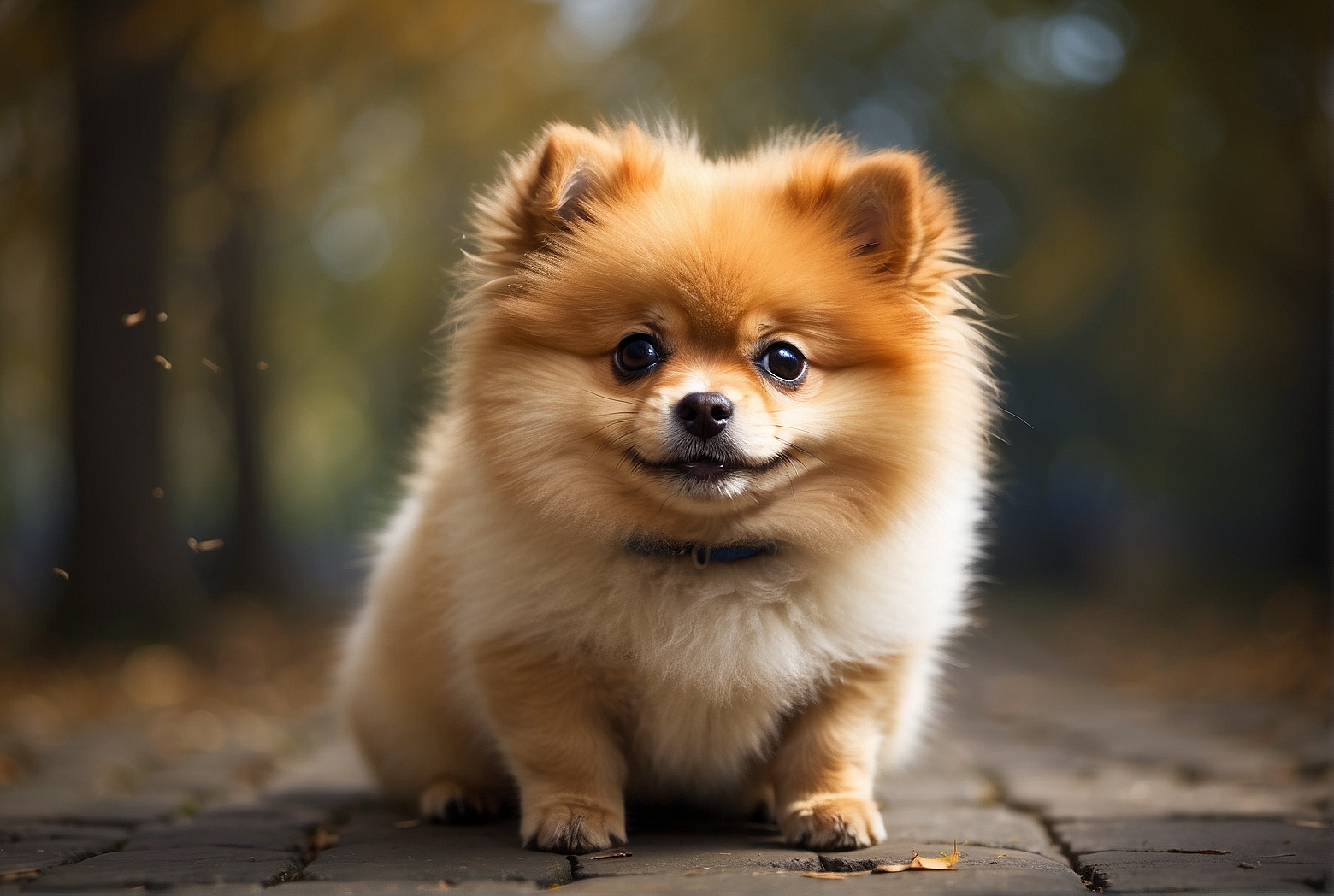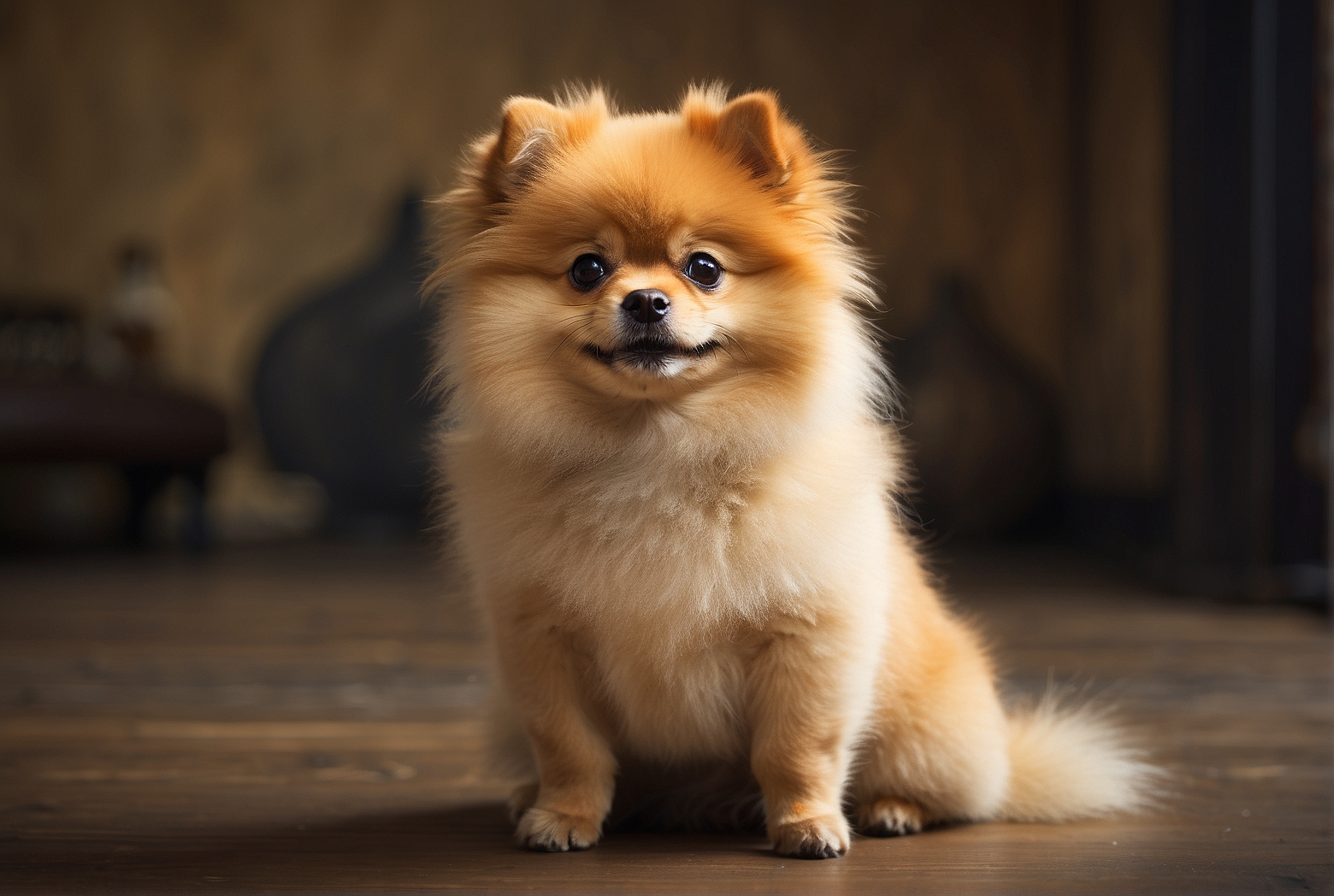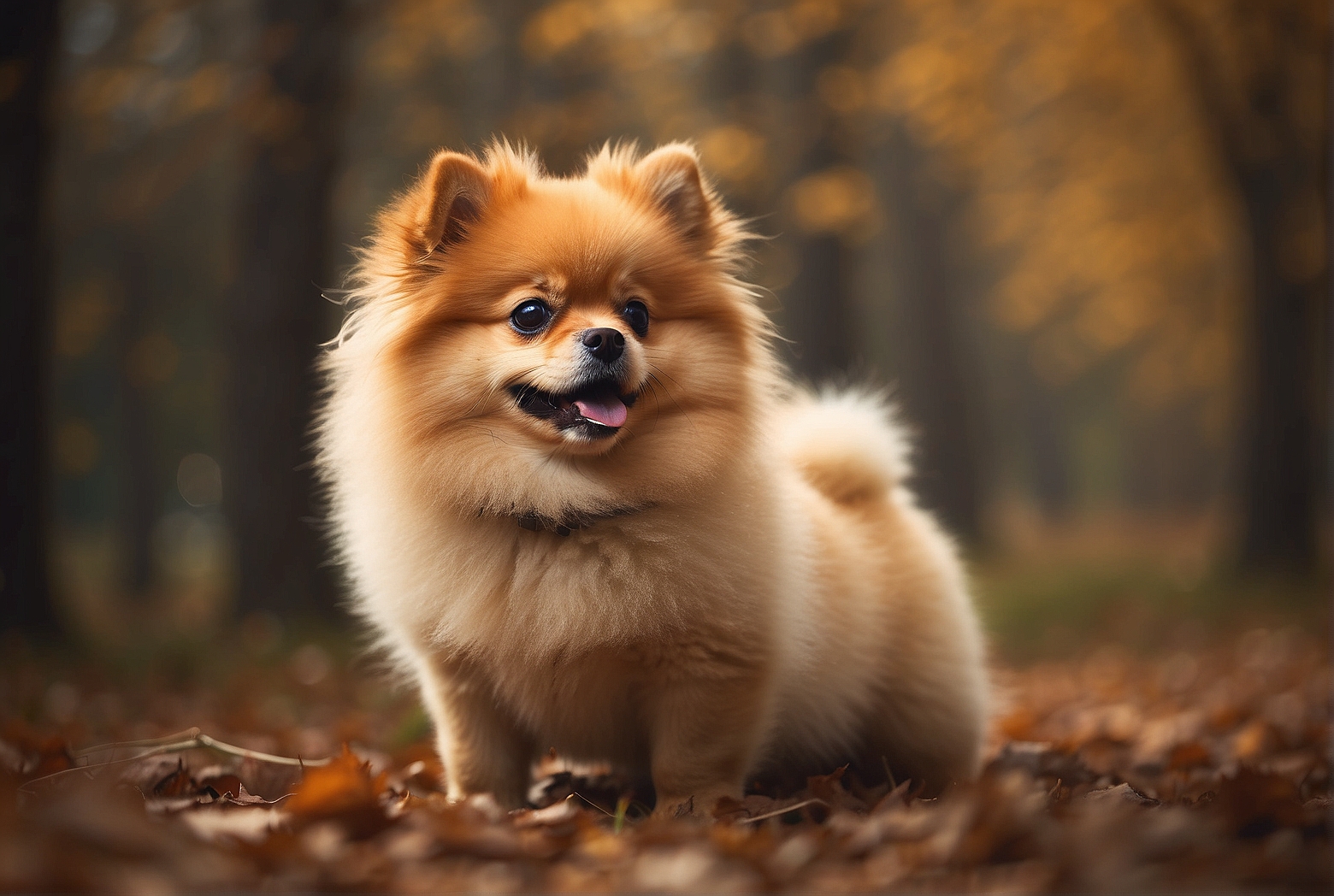Imagine the joy of bringing home a new Pomeranian puppy, with its fluffy fur and adorable face. However, amidst the excitement, a question might start to linger in your mind: will owning a Pomeranian lead to aggression towards its owner? Concerns about this breed’s temperament can arise, especially when compared to larger breeds like the Great Dane. In this article, we will explore the topic further, examining the factors that contribute to a Pomeranian’s behavior and whether or not there is any truth to the notion that they may turn on their owners. So, let’s put your worries to rest and discover what lies behind the playful nature of these lovable furballs.
Introduction
If you’re considering adding a Pomeranian to your family, you may have heard concerns about aggression in this breed. It’s important to understand that like any dog, a Pomeranian’s behavior is influenced by various factors, and aggression is not a trait specific to this breed. In this article, we will delve into the Pomeranian breed, explore the factors that can contribute to aggression in dogs, and debunk common myths about Pomeranians and aggression. Additionally, we will provide helpful tips for preventing aggression and being a responsible Pomeranian owner.
Understanding the Pomeranian Breed
Origins and history of the Pomeranian
The Pomeranian breed originated in the Pomerania region of present-day Poland and Germany. These small dogs were initially larger sled-pulling and herding dogs, but through selective breeding, their size reduced over time, resulting in the adorable Pomeranian we know today. Their popularity skyrocketed in the 18th century when Queen Victoria of England fell in love with the breed.
Physical characteristics and temperament of Pomeranians
Pomeranians are petite and fluffy dogs, typically weighing between three to seven pounds. Despite their small size, they are known for their lively and extroverted temperament. Pomeranians are intelligent, curious, and eager to please their owners. They can be sociable with other pets and children, but early socialization plays a crucial role in shaping their behavior.
Common misconceptions about Pomeranian aggression
One common misconception about Pomeranians is that they are inherently aggressive. However, it’s important to note that aggression is not a breed-specific trait and should not be generalized. Like any dog, there are various factors that can influence a Pomeranian’s behavior, and aggression is often the result of improper training, socialization, or underlying health issues. It’s unfair to assume that Pomeranians are prone to aggression solely based on their breed.
Factors Influencing Aggression in Dogs
Genetics and breed predispositions
Genetics can play a role in a dog’s temperament, but it is important to remember that genetics alone do not determine aggression. While some breeds may have certain predispositions or tendencies, aggression is a complex behavior influenced by numerous factors, including environment and upbringing.

Early socialization and training
Early socialization and training are crucial in shaping a dog’s behavior. Pomeranians, like any breed, need to be exposed to various environments, people, and animals from a young age to develop appropriate social skills. Proper training using positive reinforcement techniques helps establish boundaries and reinforces desired behaviors.
Health and medical conditions
Undiagnosed health issues or underlying medical conditions can sometimes manifest as aggression in dogs. It is essential to regularly consult with a veterinarian to rule out any potential physical or mental health problems that may contribute to aggressive behavior.
Environment and living conditions
An environment lacking in stimulation, social interaction, or positive reinforcement can lead to frustration and behavioral issues in dogs. Dogs need a safe and enriching living environment that includes mental stimulation, playtime, and opportunities for exercise to prevent the development of aggressive tendencies.
Lack of proper exercise and mental stimulation
Pomeranians are active and intelligent dogs that require regular exercise and mental stimulation to keep them physically and mentally healthy. When deprived of these essential needs, dogs can become restless and exhibit unwanted behaviors, including aggression. Ensuring your Pomeranian gets plenty of exercise and engaging activities is crucial for their overall well-being.
Recognizing Signs of Aggression
Types of aggression in dogs
Aggression in dogs can manifest in different forms, such as fear-based aggression, dominance aggression, territorial aggression, or resource guarding. Understanding these different types of aggression can help identify the underlying causes and choose appropriate training and behavior modification techniques.
Behavioral cues indicating aggression
Recognizing the warning signs of aggression is essential for both your safety and the well-being of your Pomeranian. These cues may include growling, snapping, lunging, or showing teeth. It’s crucial to address these behaviors promptly and seek professional guidance to prevent the escalation of aggression.

Distinguishing between fear-based aggression and dominance aggression
Fear-based aggression and dominance aggression are two common types of aggression in dogs. Fear-based aggression occurs when a dog feels threatened or afraid, while dominance aggression arises from a dog’s desire to assert control or establish dominance. Understanding the underlying causes of aggression can help tailor training methods and behavior modification techniques to address the specific issues.
Debunking the Myth: Pomeranians and Aggression
Understanding the small size factor
One factor often cited as a reason for aggression in Pomeranians is their small size. However, aggression is not predetermined by a dog’s size. While Pomeranians may display aggression due to various factors, it is unfair to attribute aggression exclusively to their size. It’s crucial to treat all dogs as individuals, and never make assumptions based solely on their breed or size.
Dispelling generalizations about Pomeranians
Pomeranians, like any other breed, have individual personalities that are influenced by their upbringing and environment. Generalizing all Pomeranians as aggressive based on anecdotal incidents or misconceptions is unfair and inaccurate. By providing responsible care, training, and socialization, Pomeranians can thrive as well-behaved and well-adjusted companions.
Importance of responsible breeding and selection
It is vital to choose a reputable breeder or adoption agency when considering adding a Pomeranian to your family. Responsible breeders prioritize the health and temperament of their dogs, working to breed dogs with sound temperaments and good behavior traits. By selecting a well-bred Pomeranian and providing responsible ownership, the likelihood of aggression can be greatly reduced.
Preventing Aggression in Pomeranians
Early socialization and exposure to various environments
Early socialization is crucial for Pomeranians to develop appropriate behavior and social skills. Introduce your Pomeranian puppy to a wide range of people, animals, and environments in a safe and positive manner. This exposure helps them build confidence and reduces the likelihood of fear-based aggression.
Positive reinforcement training techniques
Positive reinforcement training techniques are effective in teaching desired behaviors and preventing aggression. Rewarding your Pomeranian for good behavior rather than punishing unwanted behaviors helps build a strong bond and fosters a positive learning experience. Seek professional guidance and enroll in obedience classes to ensure proper training techniques are used.
Establishing clear boundaries and consistent rules
Consistency is key when it comes to setting boundaries and rules for your Pomeranian. Clearly communicate your expectations and enforce them consistently. Providing a predictable and structured environment helps your Pomeranian understand what is expected of them and minimizes the likelihood of developing aggressive behaviors.
Proper exercise and mental stimulation
Pomeranians are energetic dogs that require regular exercise to release pent-up energy and prevent behavioral issues. Engage in daily physical activities such as walks, play sessions, or interactive toys to keep your Pomeranian mentally and physically stimulated. A tired dog is often a well-behaved dog.
Regular veterinary check-ups and addressing health issues
Regular visits to the veterinarian are essential for your Pomeranian’s overall health and well-being. Addressing any underlying health issues promptly can prevent these issues from manifesting as aggression or unwanted behavior. Provide your Pomeranian with necessary vaccinations, dental care, and grooming to maintain their overall health.
Tips for Responsible Pomeranian Ownership
Research and preparation before getting a Pomeranian
Before bringing a Pomeranian into your home, it is crucial to research the breed thoroughly. Understand their needs, exercise requirements, and temperament traits to ensure they align with your lifestyle and family dynamics. Being well-prepared will set the stage for a successful and fulfilling relationship with your Pomeranian.
Choosing a reputable breeder or adoption agency
When acquiring a Pomeranian, choose a reputable breeder or adoption agency. Responsible breeders prioritize the health and temperament of their dogs and provide appropriate socialization and care. Alternatively, consider adopting a Pomeranian from a reputable rescue organization. By doing so, you give a deserving dog a second chance while ensuring responsible ownership.
Maintaining a safe and enriching living environment
Create a safe and enrichment-filled living environment for your Pomeranian. Remove potential hazards, provide appropriate toys and mental stimulation, and establish a secure fencing system if you have a yard. Consider crate training as a safe space and as a tool for managing your Pomeranian’s behavior when necessary.
Educating yourself about Pomeranian behavior
Understanding Pomeranian behavior and their specific needs is essential for responsible ownership. Learn about their breed traits, exercise requirements, grooming needs, and potential health issues. By educating yourself, you can be better equipped to meet your Pomeranian’s needs and address any behavioral challenges that may arise.
Seeking assistance from professional trainers or behaviorists
If you encounter challenges with your Pomeranian’s behavior or notice signs of aggression, seek guidance from professional trainers or animal behaviorists. They can provide valuable insights into your dog’s behavior, offer effective training techniques, and help you address any underlying issues that may contribute to aggression.
Case Studies of Aggression in Pomeranians
Examining specific instances of aggression
Although aggression in Pomeranians is not prevalent, isolated incidents can occur. By examining specific instances of aggression, we can better understand the various triggers and underlying causes. Identifying patterns and commonalities can aid in developing effective prevention and resolution strategies.
Identifying possible underlying causes
Aggression in Pomeranians can stem from a variety of factors, including fear, lack of socialization, resource guarding, or poor handling during early stages of life. Identifying these underlying causes is crucial in implementing targeted behavior modification techniques and preventing future instances of aggression.
Discussing resolution strategies and outcomes
Addressing aggression in Pomeranians requires a tailored approach based on the specific triggers and causes. Behavior modification techniques, such as desensitization and counterconditioning, can help reshape your Pomeranian’s response to certain stimuli. Consulting with professionals experienced in aggression cases can greatly improve outcomes and ensure a safe and harmonious environment.
Seeking Professional Help
When to consult a veterinarian or animal behaviorist
If you are concerned about your Pomeranian’s aggression or are unable to manage their behavior effectively, it is important to seek assistance from a veterinarian or certified animal behaviorist. They can conduct a thorough evaluation, provide a diagnosis, and offer targeted behavior modification techniques to address aggression effectively.
Behavior modification techniques for aggressive Pomeranians
Behavior modification techniques aim to address and modify your Pomeranian’s aggressive behavior. These techniques may include desensitization, counterconditioning, positive reinforcement training, and other strategies tailored to your dog’s specific needs. Professional guidance is crucial to ensure the proper implementation of these techniques.
Support options for Pomeranian owners
As a Pomeranian owner, it is essential to surround yourself with a support system that understands the challenges and joys of raising a dog. Seek out local Pomeranian clubs, online forums, or social media groups where you can connect with other Pomeranian owners and share experiences, tips, and resources.
Conclusion
Owning a Pomeranian does not mean you are destined for aggression issues. By understanding the Pomeranian breed, recognizing the factors influencing aggression in dogs, and implementing preventative measures, you can provide a safe and loving environment for your Pomeranian. Responsible ownership, proper training, early socialization, and seeking professional assistance when needed are key to ensuring a happy and well-behaved Pomeranian companion. Remember, aggression is not specific to any breed, and a well-cared-for Pomeranian can bring endless joy and love to your life.
